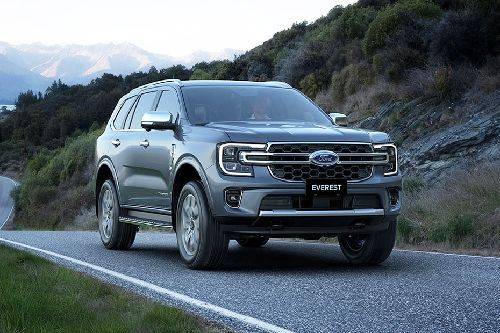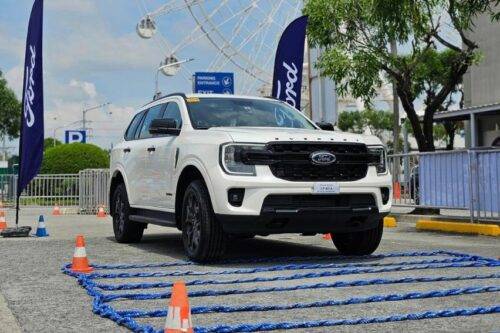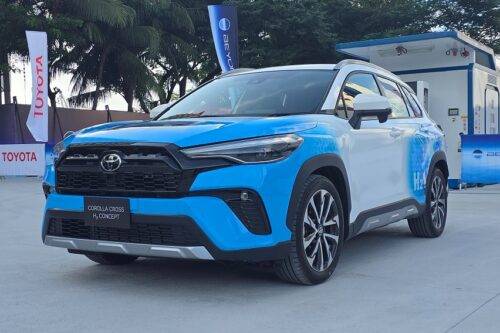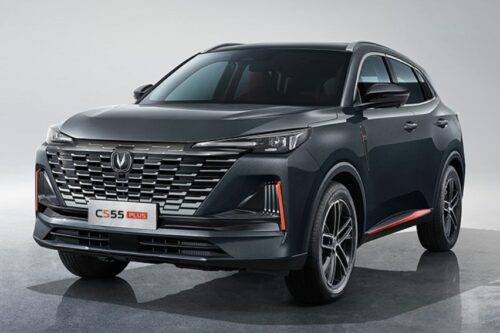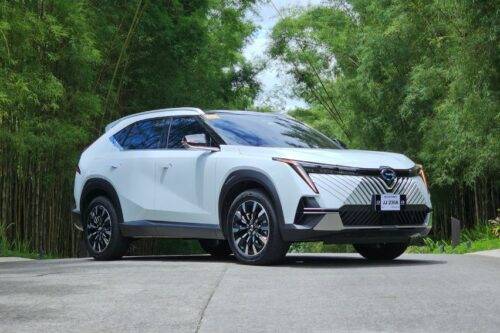Ford’s Integrated Sustainability and Financial Report highlights transition to electric mobility

MANILA: Ford's 2022 Integrated Sustainability and Financial Report concentrates on the company's shift to become a leader in the electric revolution, with plans to increase production to over two million electric vehicles per year by 2026 and make half of its yearly sales volume electric by the end of the decade.
KEY TAKEAWAYS
How much reduction in absolute manufacturing greenhouse gas footprint did Ford achieve last year from 2017 levels?
In 2021, Ford was able to cut its absolute manufacturing greenhouse gas footprint by 35% compared to 2017 levels.How much will Ford invest in the development of electric vehicles and the batteries that power them over the next five years?
Ford aims to invest more than US$50 billion globally between 2022 and 2026 to manufacture electric vehicles and the batteries that power them in order to keep up and succeed in a new generation of electric and connected vehicles.Ford has pledged to attain carbon neutrality by 2050, with science-based interim targets set to be met by 2035. The new report includes voluntary climate-related disclosures and highlights Ford's progress toward reducing emissions per vehicle by 50% from the 2019 base year and emissions from operations by 76% from 2017 base year. In 2021, the company cut its absolute manufacturing greenhouse gas footprint by 35% compared to 2017 levels.
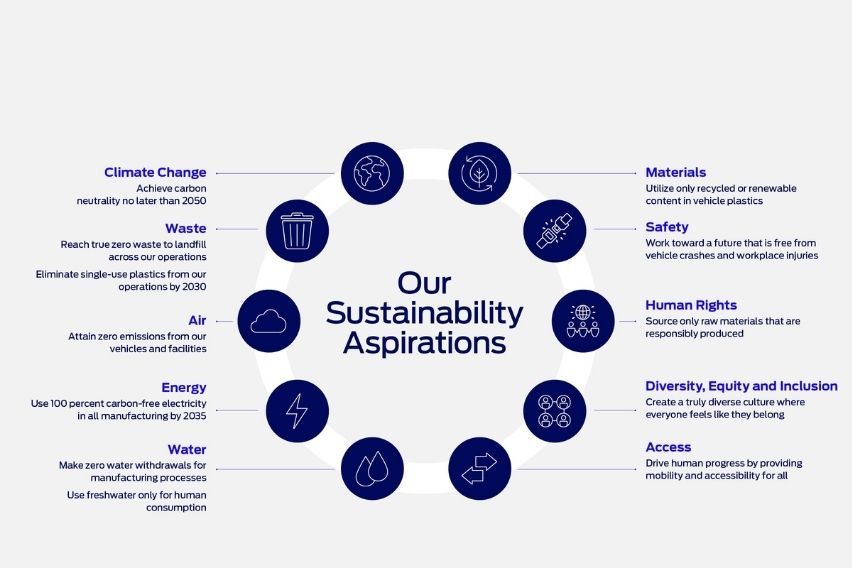
The transition to electric vehicles is vital to Ford's sustainability goals, but it comes with its own set of hurdles, including procuring raw materials, end-of-life battery recycling, and human rights concerns. Ford is also producing a human rights report, a first for Ford and the US auto sector, as well as an united task force on climate-related financial disclosures and a climate risk scenario study to provide further information on these matters.
In a statement, Ford Executive Chairman Bill Ford said, “The truest mark of success is whether we leave the world a better place for the next generation. Each year, our integrated report reminds me of our commitment to our values, and our drive to move the needle on the issues that matter. This has been true since we launched the report 23 years ago, a first for the industry, and it could not be truer today. I am also pleased to say that this year, Ford will publish a human rights report, another first for the U.S. auto industry. It will examine how our materials are sourced, where our products are manufactured and how our labor standards measure up. I am proud of the progress we have made over the last two decades and look forward to our continued accomplishments.”

Ford aims to invest more than US$50 billion globally between 2022 and 2026 to manufacture electric vehicles and the batteries that power them in order to keep up and succeed in a new generation of electric and connected vehicles. Thousands of new jobs will be created, and a sustainable and ethical supply chain will be built, all from some of the world's most innovative and efficient car factories.
“This year’s report is significant because it demonstrates Ford’s longstanding commitment to transparency and holding ourselves accountable. “It gives our stakeholders a clear picture of how we are going to put people first and respect human rights as we transition to electric vehicles, building on our legacy of climate action and environmental protection. Our company strategy and sustainability goals are indelibly linked — what’s good for the planet is good for our customers and our business,” Ford Sustainability, Homologation, and Compliance Global Director Cynthia Williams stated.
The Ford+ plan for growth and value creation is outlined in the 2022 Integrated Sustainability and Financial Report, which explains how the company's significant fundamental strengths are leveraged to scale electric vehicle production and harness connectivity and disruptive technology to make its products more accessible, inclusive, and safer to drive than ever before. Ford was one of the first US car manufacturers to join the global community in the Paris Agreement to combat global warming, and the company's goal is to develop a business model that extends beyond net-zero and becomes net-positive for both the environment and society.

Ford has joined RouteZero, a global alliance seeking to reduce global warming by producing all new cars and vans zero-emissions by 2040 worldwide, and by 2035 in major markets.
Ford also presented a sustainable financing framework to drive investments in social and environmental programs, opening the way for the company's first green bond, which generated US$2.5 billion over a 10-year period to help support its new electric vehicle portfolio.
Ford and SK Innovation also announced a US$11.4-billion joint investment in BlueOval City and three BlueOval SK joint-venture battery plants in Kentucky and Tennessee, providing over 11,000 new jobs and contributing to the creation of a sustainable manufacturing environment. Within the next five years, Ford will invest over $525 million on professional development and training for auto technicians who will work on electric and connected vehicles.

Ford is also partnering with Redwood Materials, a leading battery material supplier, to make electric vehicles more sustainable and affordable for Americans by localizing the supply chain network, creating recycling options for scrap and end-of-life batteries, and boosting lithium-ion battery recycling. Ford also aims to open Ford Ion Park, a global battery hub in southeast Michigan, with new investments to develop, test, and manufacture lithium-ion battery cells and cell arrays, as well as solid-state battery technologies.
Ford has also cut its yearly water consumption by more than 78% since 2000, and has developed 89 zero-waste-to-landfill facilities throughout the world, all while lowering its worldwide production carbon footprint by more than 35% since 2017.

Ford also introduced a new diversity, equity, and inclusion (DEI) goal to boost gender and racial diversity in senior leadership, which it will monitor quarterly as it works to develop the workforce of the future. In 2021, Ford widened its DEI audit to seven new key markets in the United States.
Ford has also donated more than US$74.4 million in charitable contributions to advance equity and empower underprivileged and marginalized communities throughout the world through its philanthropic arm, Ford Fund. Ford and Ford Fund donated 120 million masks to at-risk persons and groups in all 50 US states to help combat the spread of COVID-19, created a community immunization center in Romania, and distributed food and medical supplies to thousands of households in South America.

The Ford+ plan for growth and value creation is succeeding, as evidenced by operating results and other measures from 2021. Despite industrywide semiconductor shortages, other supply chain delays, and the lingering consequences of the COVID-19 pandemic, Ford's sales, net income, and adjusted earnings before interest and taxes all increased year over year. The company is making significant progress in terms of both strategic direction and financial performance.
Ford has combined its annual financial and sustainability reports for the second year to present a more comprehensive view of its progress, recognizing 23 years of transparency and integrity in sustainability reporting for investors and stakeholders.
Photos from Ford
Also read: WATCH: Ford wants traffic lights to turn green for emergency vehicles
Sell your car at the best price
 Verified and genuine buyers
Verified and genuine buyers
Ford Car Models
PIMS 2024
- Latest
- Popular
You might also be interested in
- News
- Featured Stories
- Latest
- Upcoming
- Popular
Latest Ford Car Videos on Zigwheels

Ford Car Articles From Carmudi
- journal
- insurance


